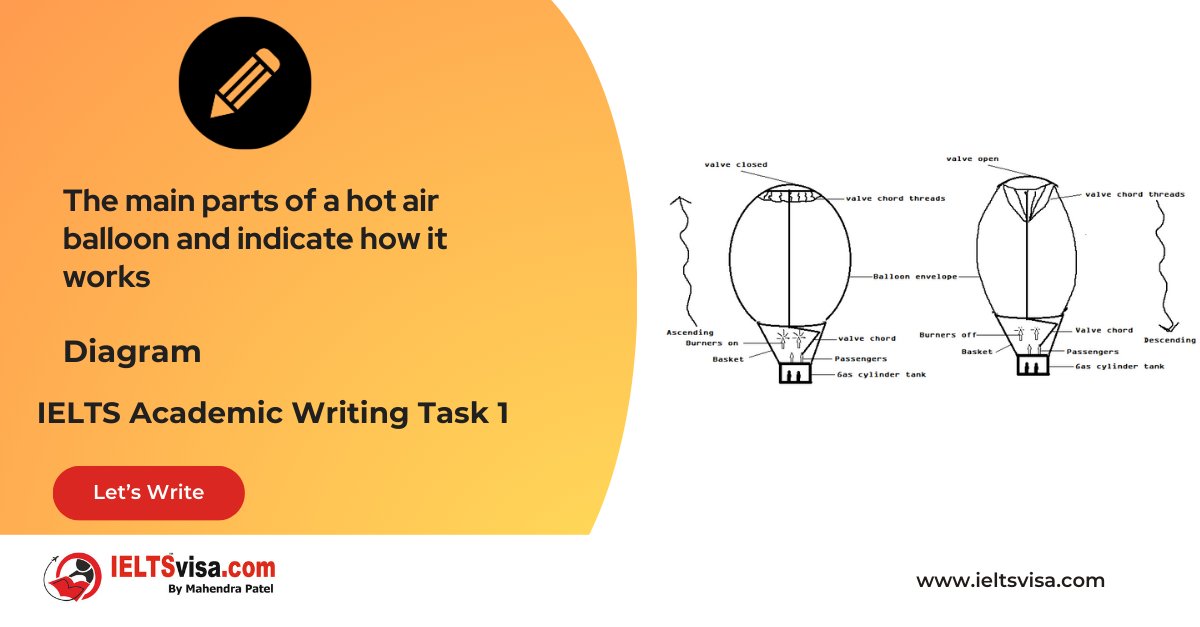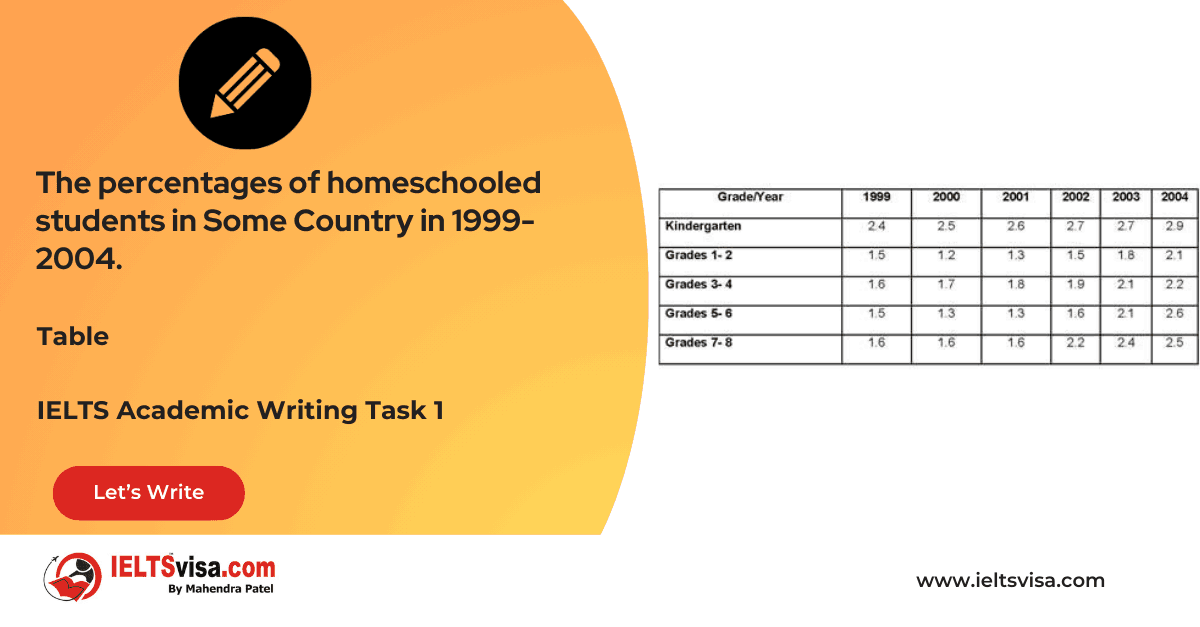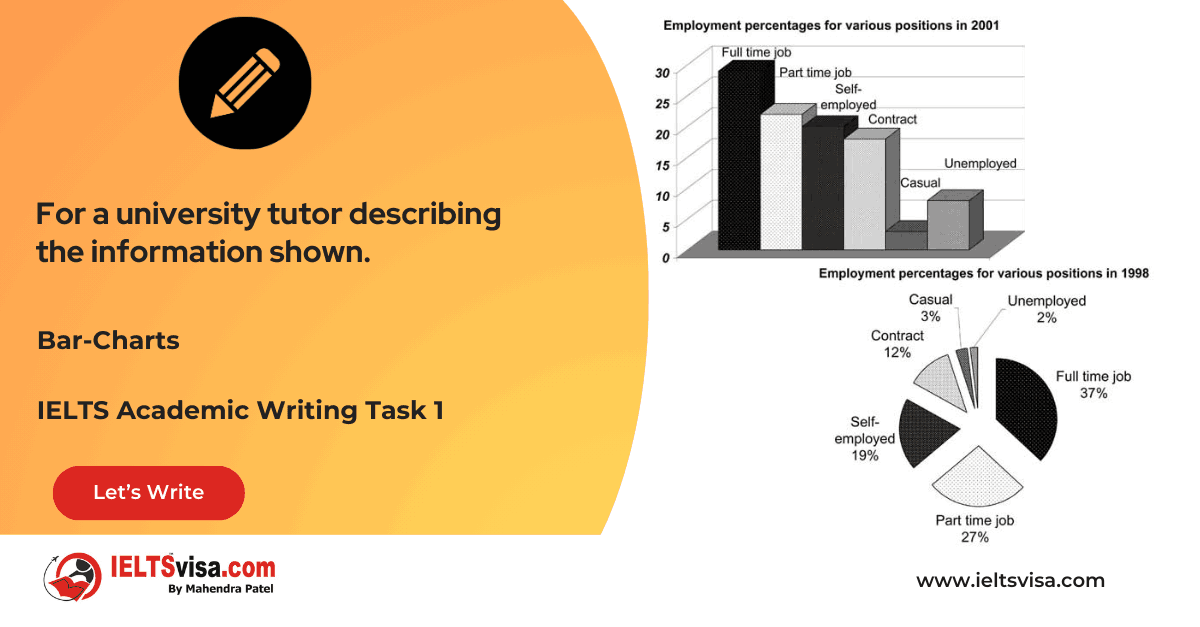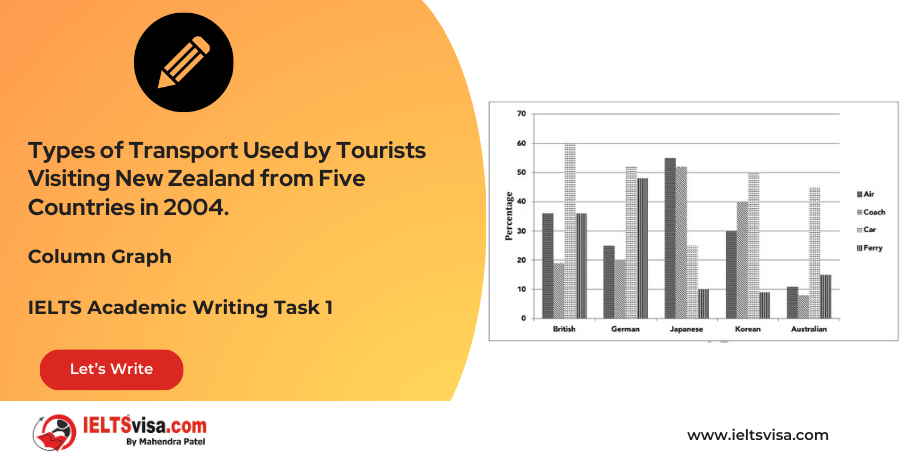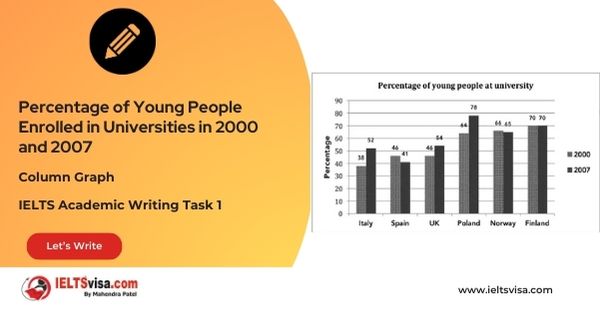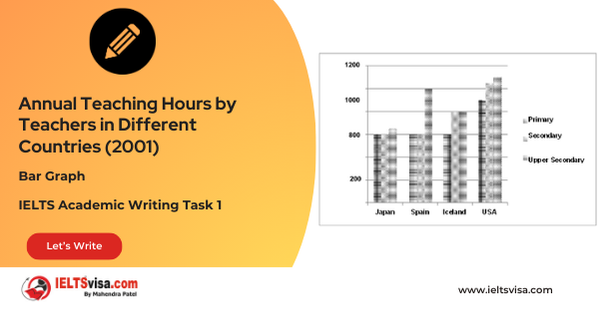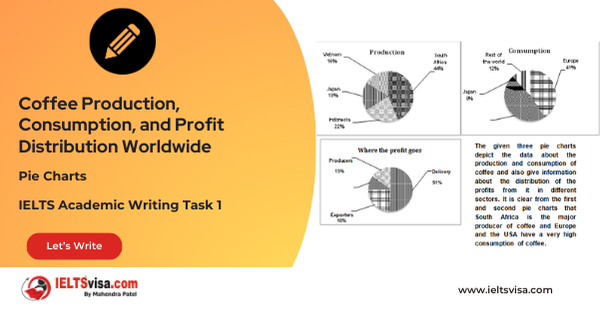Verbs and Adverbs
Lexical Resource & Grammatical Range and AccuracyIELTS Academic Writing Task 1
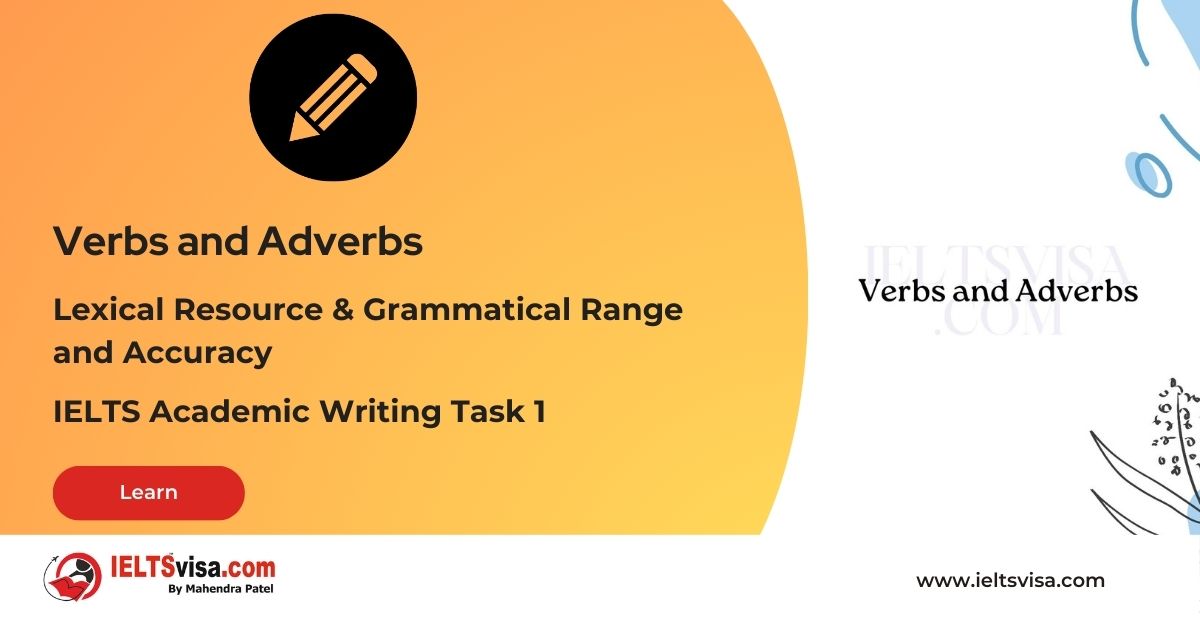
In the IELTS Academic Writing Task 1, demonstrating a strong command of verbs and adverbs is essential for achieving a high score in the Lexical Resource and Grammatical Range and Accuracy criteria.
This task requires test takers to describe and interpret visual information, such as graphs, charts, and diagrams. Test takers must use a wide range of verbs and adverbs to convey information accurately and showcase language proficiency.
In this article, we will explore the importance of verbs and adverbs in Task 1, accompanied by examples and answers to help you excel.
1. Verbs:
Verbs are crucial in Task 1 as they provide the action and movement in your descriptions. Here are some important considerations for using verbs effectively:
a. Choosing Appropriate Verbs:
Selecting precise and varied verbs helps convey the intended meaning and adds depth to your descriptions.
For instance:
Original Sentence:
The number of visitors increased.
Revised Sentence:
The number of visitors surged.
In this revised sentence, the verb “surged” adds a sense of rapid and significant increase, providing a more vivid description.
b. Active and Passive Voice:
Using both active and passive voice can enhance your writing by providing variety in sentence structure.
For example:
Original Sentence:
The company achieved high profits.
Revised Sentence:
High profits were achieved by the company.
By changing from active voice to passive voice, you can vary the sentence structure and focus on different aspects of the information.
c. Verb Phrases:
Utilising verb phrases can help provide a more specific and nuanced description.
Example:
Original Sentence:
The price increased.
Revised Sentence:
The price shot up dramatically.
In this revised sentence, the verb phrase “shot up dramatically” vividly depicts a sudden and significant increase in price.
2. Adverbs:
Adverbs play a crucial role in Task 1 as they provide additional information about the verbs, emphasising their intensity, frequency, or manner. Here are some key considerations for using adverbs effectively:
Adverbs of Degree:
Adverbs of degree help specify the intensity or extent of the action. Example:
Original Sentence:
The temperature rose.
Revised Sentence:
The temperature rose significantly.
In this revised sentence, the adverb “significantly” adds precision and conveys the magnitude of the temperature increase.
b. Adverbs of Frequency:
Adverbs of frequency help convey how often an action occurs.
Example:
Original Sentence:
The rainfall increased.
Revised Sentence:
The rainfall steadily increased.
In this revised sentence, the adverb “steadily” indicates that the increase in rainfall was consistent over time.
c. Adverbs of Manner:
Adverbs of manner describe how an action is performed.
Example:
Original Sentence:
The company expanded.
Revised Sentence:
The company expanded rapidly.
In this revised sentence, the adverb “rapidly” adds clarity and indicates the speed at which the expansion occurred.
Using a combination of precise and appropriate verbs and well-placed adverbs can significantly enhance the quality of your writing in Task 1. However, it is crucial to use them judiciously and wisely. Ensure that the verbs and adverbs accurately convey the intended meaning and are consistent with the information presented in the visual.
In conclusion, a strong command of verbs and adverbs is vital for achieving a high score in the Lexical Resource and Grammatical Range and Accuracy criteria of the IELTS Academic Writing Task 1.
You can convey information accurately and vividly by choosing appropriate verbs, employing active and passive voice, utilising verb phrases, and using adverbs effectively. Practice incorporating many verbs and adverbs into your writing, and remember to proofread for clarity and coherence.
With consistent effort, you will enhance your performance in Task 1 and achieve success in your IELTS examination.
Good Luck!




Our Books
Master IELTS Speaking Part 1
IELTS Writing Task 1 Book
IELTS Writing Task 2 Book
Practice IELTS Other Modules
IELTS Listening
The IELTS Listening test assesses how well you can understand spoken English in various contexts. It lasts about 30 minutes and is divided into four sections with a total of 40 questions. The listening tasks become increasingly difficult as the test progresses.
IELTS Academic Reading
The IELTS Academic Reading section assesses your ability to understand and interpret a variety of texts in academic settings. It is designed to evaluate a range of reading skills, including skimming for gist, reading for main ideas, reading for detail, understanding inferences, and recognizing a writer's opinions and arguments.
IELTS Speaking
The IELTS Speaking test assesses your ability to communicate in English on everyday topics. It lasts 11-14 minutes and consists of three parts: introduction, cue card, and a discussion based on the cue card topic.
IELTS General Reading
IELTS General Reading tests your ability to understand and interpret various types of texts. Here are some key areas and types of content you can expect to encounter in the reading section, along with tips for effective preparation.
IELTS Academic Writing Task 1
In IELTS Academic Writing Task 1, you are presented with a visual representation of information, such as graphs, charts, tables, or diagrams, and you are required to summarize, compare, or explain the data in your own words.
IELTS General Writing Task 1
In IELTS General Writing Task 1, you are required to write a letter based on a given situation. The letter can be formal, semi-formal, or informal, depending on the prompt. Here’s a breakdown of the key components to include in your letter
IELTS Academic Writing Task 2
In IELTS Academic Writing Task 2, you are required to write an essay in response to a question or topic. Here’s a guide to help you understand the essential elements of this task
IELTS Exam Tips
To succeed in the IELTS exam, practice regularly, familiarize yourself with the test format, improve your vocabulary, develop time management skills, and take mock tests to build confidence.
Grammer for IELTS
Grammar is the foundation of effective communication in English. Understanding tense usage, subject-verb agreement, and sentence structure enhances clarity and coherence in writing and speaking.
Vocabulary for IELTS
Vocabulary plays a crucial role in the IELTS (International English Language Testing System) exam, especially in the Speaking and Writing sections. Here’s an overview of why vocabulary is important and how it impacts your performance
RECENT IELTS SAMPLES QUESTIONS AND ANSWERS
Task 1 – Diagram – A conference hall built in 1981 and planned for 2020
20:00 Start Pause Stop [df_adh_heading title_infix="IELTS Writing Task 1 Question" use_divider="on"...
Task 1 – Table – The percentages of homeschooled students in Some Country in 1999-2004.
20:00 Start Pause Stop [df_adh_heading title_infix="IELTS Writing Task 1 Question" use_divider="on"...
Task 1 – Table – For a university tutor describing the information shown.
20:00 Start Pause Stop [df_adh_heading title_infix="IELTS Writing Task 1 Question" use_divider="on"...
Task 1 – Bar-Charts – The way people of Some country invested their money during the years 2001 – 2006
20:00 Start Pause Stop [df_adh_heading title_infix="IELTS Writing Task 1 Question" use_divider="on"...
Task 1 – Diagram – Rainwater Harvesting and Conversion to Drinking Water in an Australian Town.
20:00 Start Pause Stop [df_adh_heading title_infix="IELTS Writing Task 1 Question" use_divider="on"...
Task 1 – Column graph – Percentage of Young People Enrolled in Universities in 2000 and 2007.
20:00 Start Pause Stop [df_adh_heading title_infix="IELTS Writing Task 1 Question" use_divider="on"...
Task 1 – Bar Graph – Annual Teaching Hours by Teachers in Different Countries (2001)
20:00 Start Pause Stop [df_adh_heading title_infix="IELTS Writing Task 1 Question" use_divider="on"...
Task 1 – Pie Charts – Coffee Production, Consumption, and Profit Distribution Worldwide
20:00 Start Pause Stop [df_adh_heading title_infix="IELTS Writing Task 1 Question" use_divider="on"...
Task 1 – Column graph – Types of Transport Used by Tourists Visiting New Zealand from Five Countries in 2004.
20:00 Start Pause Stop [df_adh_heading title_infix="IELTS Writing Task 1 Question" use_divider="on"...

